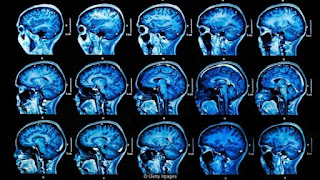What to know about multiple sclerosis!
So, what is multiple sclerosis (MS) and how do you get it?
MS is a chronic disorder where cells from the immune system
attack the nerve cells of the central nervous system (CNS). There's a special
substance called myelin, which covers the nerve cells and allows messages to
pass from your brain to the body and vice versa.
During a flare, the immune system attacks the myelin, the
nerve covering becomes inflamed and communication between the brain and body is
disrupted. The inflammation and nerve covering damage cause multiple areas of
scarring (sclerosis) within the CNS, which is where the name multiple sclerosis
originates. Unfortunately, the cause of MS is not yet known. Scientists believe
that it could be caused by an unknown interaction of genetic predisposition and
environmental factors.
Which part of the body is affected and what are the
symptoms?
Since the central nervous system is made up of your brain,
spinal cord, and specialized eye nerves, multiple sclerosis can affect a
variety of body parts including arms, legs, and eyes. The most common problems
are vision, balance, and muscle control. Other symptoms include fatigue, numbness
and tingling, weakness, dizziness, pain, and emotional changes.
Most people with MS are diagnosed between the ages of 20 and
50, with at least two to three times more women than men being diagnosed with
the disease.
Are there different types of MS?
People with multiple sclerosis all have the same type of MS
but the course of the illness may vary. It can be broken up into four different
courses: clinically isolated syndrome, relapsing and remitting MS, secondary
progressive MS, and primary progressive MS.
These differ by the onset of illness, the severity of the
symptoms, whether or not the disease is progressing during periods of
remission, and how likely the person affected will return to their baseline
level of functioning.
What is the treatment and is there a cure?
There's no cure for MS. The specialists who treat MS are
called neurologists. A neurologist will most likely use a combination of
medications, physical therapy, and psychiatric care to support patients
following a diagnosis of MS. The types of medications used are
disease-modifying medicines, medicine to manage relapses, and medicine to
manage symptoms associated with a flare.




I got sick on September the 9th,2017,i fell in my kitchen never walked again.I never had any warning of any sort.I was scared to death,i had several test done on me and they came up with Transversemyelitis i had never heard of it ever,my family has me in a nursing home again trying to get a stage 4 wound on my back healed. I'm peralized from my chest down paraplegic,i have had dr's tell me that i have been miss diagnosist,that i have ms i dont know anymore is their anyone that could help me out some,because it is scary when you have something and no one knows what it is. Thank You ,Dianna @Fort Worth ,Tx.
ReplyDelete